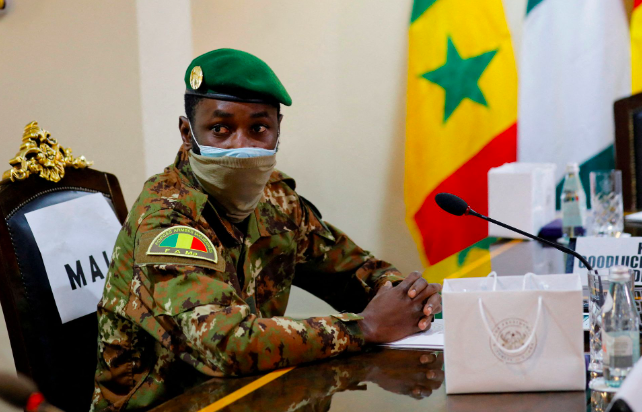Sahel alliance unveils new counter-terrorism strategy in meeting with Assimi Goïta

The military chiefs of the Sahel States Alliance (AES) convened in Mali’s capital, Bamako, for an important meeting with President Assimi Goïta.
The high-level discussions focused on unveiling a new “Defense and Security” action plan aimed at strengthening regional cooperation to combat escalating security threats across the Sahel.
On Wednesday, General Assimi Goïta, in his capacity as the President-in-Office of the Sahel States Confederation, hosted the Chiefs of Staff of the armed forces of Burkina Faso, Mali, and Niger.
The meeting included General Célestin Simporé of Burkina Faso, General Oumar Diarra of Mali, and General Moussa Barmou of Niger.
The primary goal was to present the newly developed action plan for defense and security, which had been drafted by a team of experts in security matters.
The plan, which had recently been validated by the military chiefs, is designed to energize and streamline the already successful military cooperation between the three nations.
General Oumar Diarra, the Chief of Staff of the Malian Armed Forces, expressed confidence that the new action plan would bolster the ongoing security efforts in the region, providing a renewed sense of purpose and direction to the military collaboration.
General Barmou of Niger emphasized the significance of the meeting, noting that it provided a platform for the three countries to engage in deep discussions regarding a unified strategy to address the security challenges they face.
These challenges, particularly terrorism, continue to plague the Sahel, with militants wreaking havoc across the region.
The validation of this defense and security action plan marks a pivotal moment in the AES’s evolution.
The alliance, founded just over a year ago, continues to deepen its collaboration to address common threats.
The formation of the AES was formalized with the signing of the Liptako-Gourma Charter on September 16, 2023, following rising tensions and the looming threat of military intervention by ECOWAS against Mali’s military government.
The charter outlined mutual defense commitments, emphasizing that any threat to the sovereignty of one member state would be regarded as an attack on all, triggering collective defense actions.
The three countries—Mali, Burkina Faso, and Niger—have long been battling terrorism, organized crime, and armed rebellions within their borders.
Through the AES, they aim to pool their resources and expertise to more effectively combat these interconnected challenges.
A further milestone was reached in July 2024 with the creation of the Confederation of the Sahel States Alliance (AES Confederation), solidifying the partnership’s commitment to peace, security, and regional cooperation.
As the AES takes these critical steps towards a more coordinated defense strategy, it hopes to enhance the resilience of its members in the face of one of the world’s most volatile regions.
About The Author
dailymailafric
I am an avid African news observer, and an active member of Daily Mail Africa.
I’m Passionate about staying informed on diverse topics across the continent,
I actively contribute to publishing on political, economic and cultural developments in Africa.



